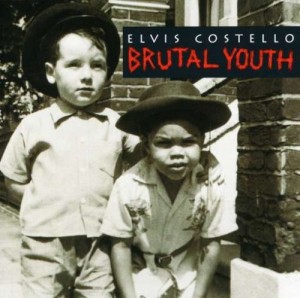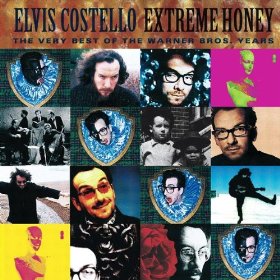
Released In 1994, "Brutal Youth" Has Become A Mandatory Listen For Fans Of Costello Both Old And New
“Brutal Youth” was incontestably Elvis Costello’s best album of the ‘90s. It was no coincidence that it was his first full-scale collaboration with The Attractions since “Blood & Chocolate”, his 1986 record that yielded the deliciously turbulent “I Want You”.
Here, Costello is backed by his classic ensemble on five numbers; Nick Lowe sits in for Bruce Thomas in the remaining seven cuts, and Elvis himself plays bass on “Kinder Murder” and “20% Amnesia”.
The disc (issued in 1994) mostly apes his late ‘70s sound, and cuts like “Pony Street”, “13 Steps Lead Down”, “My Science Fiction Twin” and “20% Amnesia” wouldn’t feel out of place on his early trinity of albums. The emphasis is often placed on the melodic twists he was always revered for in his heyday, while songs like “Rocking Horse Road” recall the more polished MO of later albums like “Get Happy!!”.
The most new-wavish song is “Kinder Murder”, whose main riff actually treads grungier turf – it always made me think of The Posies at their most pissed off (“Everybody Is A Fucking Liar”). Continue reading

